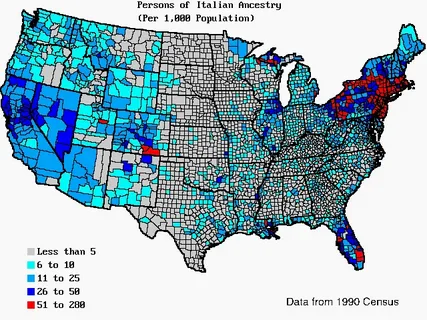Tracing your Italian ancestry requires more than just church and civil registration records. Census, military, and notarial records can also fill in gaps.
Start with what you know and move forward from there. Find what is unknown using United States and Italian records and family knowledge.
Local churches keep baptism, marriage, and burial records—the free genealogy website indexes these.
Moreover, libraries, family history centers, historical and genealogical societies, and non-government archive repositories are all ideal places to look for genealogical and family history information. They may have newspapers, personal papers of individuals, and records of private organizations.
Search by Name
Whether your goal is to trace your Italian heritage or apply for dual citizenship, you must know your ancestor’s birth town. This is arguably the most challenging information and requires family knowledge and Italian records. This is due to the large waves of emigration in Italy’s history, with many people moving between regions or countries searching for better work and living conditions.
Start by gathering the names and dates you know of your Italian ancestors, and then work backward. You may also wish to look at passports, naturalization records, or other immigration documents for clues about how your ancestors arrived in the United States.
An excellent place to start for finding names is a site that lists the distribution of surnames throughout Italy. This will help you to identify where your ancestor’s family might have come from, though it is important to remember that names were often modified upon arrival in the United States.
Search by Date
A genealogical search website can help you pinpoint your Italian ancestor’s date of birth, marriage, death, or other event. The site can also provide a list of family members if the event occurred in a large family, saving valuable time searching through family trees. The site can also help you identify important dates, such as the year of immigration to the United States.
A search site for Italian records can give you much information about your ancestors, including baptism, marriage, and death records from local parishes. Since Roman Catholicism was the predominant religion in Italy, these records can be remarkably detailed. They often include the names of parents and grandparents, and sometimes even siblings of the person the record is for.
Various websites can help you locate Italian church records. These sites index the records by name and year, making finding the exact record you’re looking for easy. If you can’t find the record in these indexes, you can still request the actual image from the registry office.
For immigrants to the United States, you’ll want to know their arrival date and whether they naturalized as American citizens. You’ll also need to find out their birth town and other vital details, such as whether they had male ancestors who served in the military.
Search by Place
Genealogical searches are often about connecting the dots. The more information you can bring, the easier it is for an expert or a site to locate the link. This may include interviewing relatives and looking for clues in old black-and-white photos. Search for any family or area history books containing information about your ancestors.
Civil records, including birth, marriage, and death certificates, are typically kept by the municipality where your ancestor lived (in Italy, the commune). This can be difficult to determine if you still need to determine the town of origin for your Italian ancestor. The Portale Antenati provides access to Italy’s state archives, including civil registration documents. The site provides indexes of each record, with a direct link to the actual record when available.
The site is free to use and has a variety of other resources. It offers tutorials on researching various ethnicities and a vast library of digitized newspapers. It also contains a database of over 11 billion gravesite locations, which can be searched via GPS coordinates. The site is aimed at the ancestry buff who has already built their family tree and wants to explore more detailed records beyond what’s usually available on the major sites.
Search by Keyword
The best place to start is with whatever information you have on your family, including birth certificates, baptisms, marriage, and death records. Having this is critical as it will help you identify key links that can be used to find further records.
You can find some excellent free genealogy websites that allow you to search by name, date, and location. Often, these sites will allow you to create your family tree, a great way to visualize how far back your ancestry goes. Then, you can use this to determine which areas of the country you need to focus on in your search.
The National Archives has an extensive collection of records on its website, covering civilians (including vast immigration records), military personnel, and prisoners of war. This is an invaluable resource, and it’s worth searching all of their records, not just those in the Genealogy section. It can be overwhelming at first, but it’s worth looking through.
